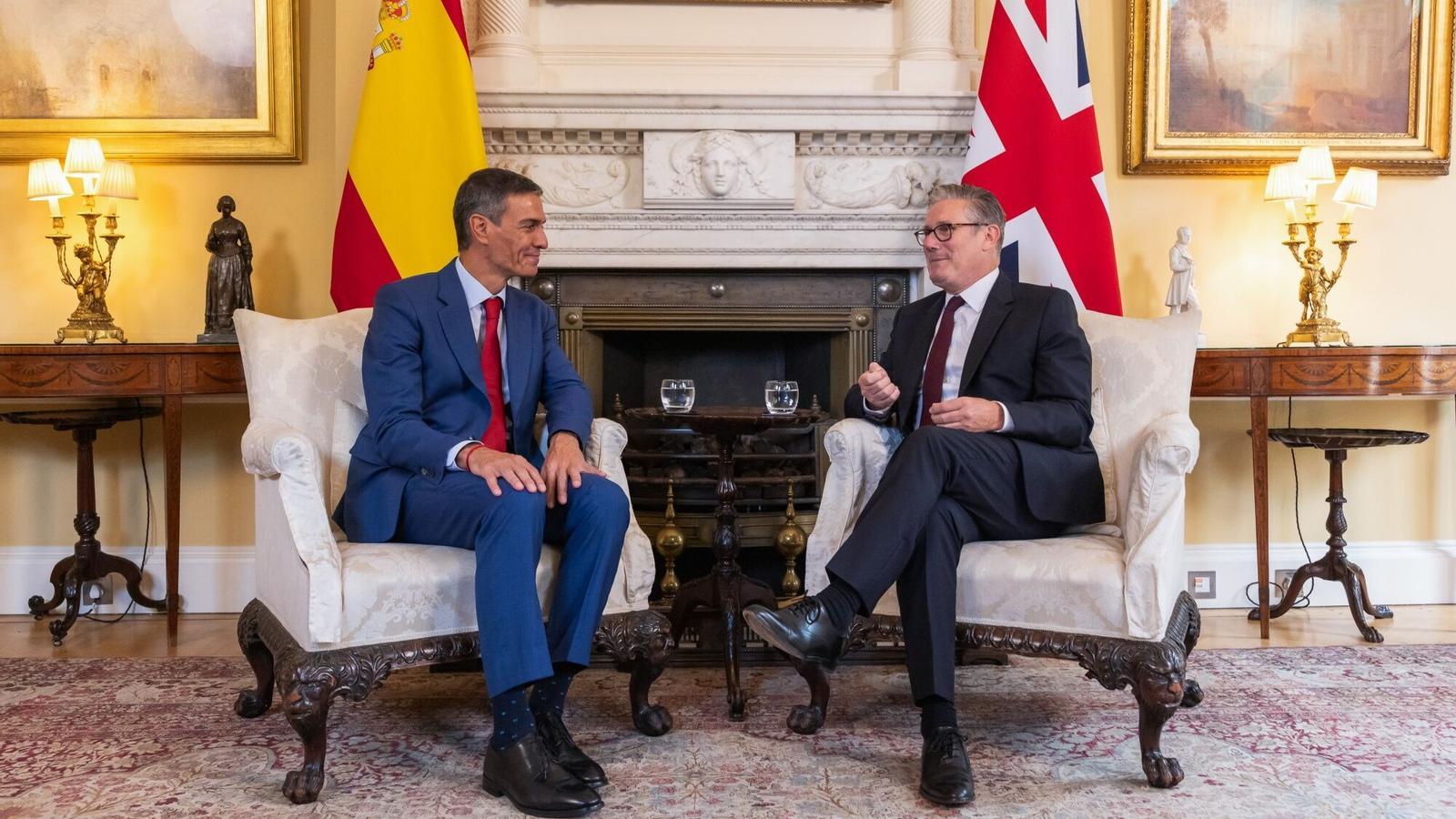Starmer and Sánchez seal a strategic pact to strengthen relations after Brexit.
Defense, energy, youth mobility, and the economy are the main topics of the memorandum on the first visit of a Spanish head of government to London in seven years.


LondonWithout effusive hugs like Emmanuel Macron or Volodymyr Zelensky, the premier British Prime Minister Keir Starmer received Pedro Sánchez in Downing Street this Wednesday afternoon, marking the first visit by a Spanish Prime Minister to the famous Number 10 in seven years, something Starmer found "incredible." In a lightning-fast trip lasting just over two hours, with very limited media coverage, no questions asked, and less than four minutes of open statements, the two discussed the significance of the meeting and the importance of the ties between the two countries, both on a human and commercial level. These ties have been sealed by the signing of a bilateral strategic agreement, "crucial," in Starmer's words, which aims to strengthen "cooperation after Brexit, and which is parallel and complementary to the United Kingdom's relationship with the European Union," according to the signed text.
The document establishes an annual political dialogue between the foreign ministers and collaboration mechanisms in trade, investment, and technological innovation, with special attention to the security of supply chains, the energy transition, and scientific research. It also includes regular business forums, a boost to SMEs, and collaboration on labor, digital, and gender equality issues. Beyond the economic sphere, the pact also sets commitments in defense, foreign policy, and global security, emphasizing NATO, cooperation in Africa, Latin America, and the Caribbean, and support for Ukraine in the face of Russian aggression. It also emphasizes initiatives to promote youth mobility, educational and cultural exchanges, language learning, and more sustainable tourism. It also promotes collaboration in justice, migration, and the fight against organized crime, as well as in transportation, public health, and climate change.
In practice, the pact formalizes a preexisting situation. de facto. And the commercial and personal relations between the United Kingdom and Spain are very relevant. London, in fact, is the fifth market for Spanish exports of goods and the first investor in Spain in net flows in 2024. The cumulative investment between both countries exceeds, in fact, 150 billion euros. Inevitably, Starmer has referred to this: [...] "thousands of people from my country who visit yours, do tourism, but also business, and this interpersonal relationship is fundamental, very valuable."
The signing of the agreement has been possible because, as President Sánchez has highlighted, "Prime Minister Starmer managed to successfully conclude a Fundamental agreement with Spain and the European Commission on Gibraltar", last June, in relation to border controls and other aspects of the Rock's status and the connection with the Spanish territory of Campo de Gibraltar.
Sánchez's complaint about Ukraine and Gaza
Hours before landing in London, Pedro Sánchez had burst onto the British media scene in an interview in The Guardian with the aim of sending a clear message regarding the situation of the Palestinian people, and denouncing Europe's double standards in the wars in Ukraine and Gaza, which threatens to "seriously damage" the credibility of the Union and the West as a whole. During the brief appearance before the cameras, both leaders referred to this, almost tiptoeing, although they described the daily life of the Strip as "terrible" for almost two years.
But the communication effort of the Moncloa, which has made the front page of The Guardian, cannot hide the lack of media coverage that Pedro Sánchez's arrival at Downing Street has had for the rest of the country. In fact, just a few hours earlier, both the news and the newspapers were focused on the figure of Deputy Prime Minister Angela Rayner, and number two in the Starmer government, who This afternoon he admitted a "mistake" when paying taxes. for the purchase of a home, which he had declared as his main residence and not his second.
Starmer has supported him in the Commons in the first session of scrutiny after the summer recess, but the scandal, which has dogged Rayner for the last seven days, exposes the numerous problems of the premier to push forward with his agenda. Not coincidentally, this week he renewed his Downing Street team for the third time in fourteen months. And, as in Spain, the domestic front for both heads of government is quite complicated, perhaps even more so for Pedro Sánchez.
